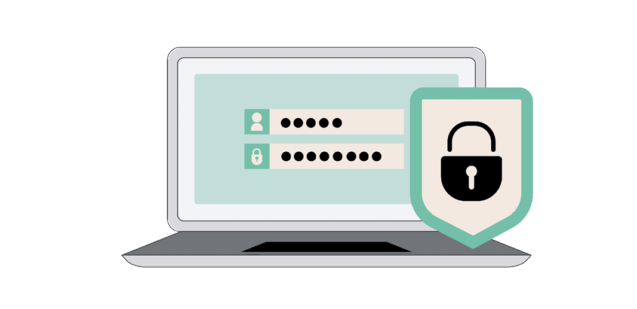Categories

In an increasingly cashless society where electronic transactions have become the norm, debit cards and credit cards have quickly become the payment methods of choice. And while they look almost identical, it’s important to understand the fundamental difference between the two: Debit cards give cardholders access to the money they’ve deposited in an account at a bank or credit union. Credit cards function like a loan, allowing the cardholder to borrow money from a credit line with an established limit.
With that technical difference in mind, let’s make this conversation a little more practical. Various studies have shown that the overwhelming majority of Americans — roughly 70% — have at least one credit card. The same number of consumers reported having at least one debit card as well. So, based on the numbers alone, let’s assume you have at least one debit card and one credit card in your wallet. When you step up to the register at a store or click the checkout button on a website, which card should you use? Each has its benefits, so the choice isn’t as cut and dry as you may think. Like any financial decision, the answer depends on your goals.
Top 3 Reasons to Use a Debit Card
- To control spending.
Since a debit card withdraws funds from your checking account, your spending is effectively limited by your account balance. If you try to make a $1,000 purchase when there’s only $800 in your account, the transaction will be declined. Beyond the obvious spending restrictions, debit cards still allow you to feel the weight of each purchase decision. Unlike credit cards, which bill on a monthly basis, debit card transactions show up immediately. This “pain of paying” can be a useful budgeting tool that helps you think twice before making unwise purchase decisions. - To minimize debt.
If you’re trying to pay off debt or steer clear of it in the first place, a debit card offers the convenience and flexibility you need — but without the added burden of debt. Since debit card transactions use the money in your account to pay for each purchase, the payment is immediate — and more importantly, interest-free. Proponents of a cash-only budgeting system recommend debit cards as a smart way to combine the old-school wisdom of paying cash with the modern convenience of electronic commerce. - To avoid fees.
When you’re trying to make financial progress, unexpected expenses — even small ones — can undermine your plan. And that’s exactly what fees are, unexpected expenses. Annual fees. ATM fees. Cash advance fees. Late fees. They all add up. However, since they’re usually small ($1.99 here, $4.99 there), most people overlook them when planning their monthly budget. In many cases, debit cards carry fewer potential fees than credit cards, making them an excellent choice for anyone trying to keep a close eye on their spending.
Top 3 Reasons to Use a Credit Card
- To build (or repair) your credit.
Remember when you were trying to get your first real job? You couldn’t get hired without experience, but you couldn’t gain experience without getting hired. Credit ratings can be just as frustrating. A company has to deem you credit-worthy before they will issue you credit, but the only way to prove your worthiness is to manage your credit successfully. See? Frustrating. Fortunately, many banks and credit unions often offer secured and unsecured credit card options that allow you to demonstrate your creditworthiness and build (or rebuild) a strong credit rating in the process. - To earn rewards.
Cashback programs, hotel points, airline miles, oh my! If there’s one thing credit card companies have learned how to do well, it’s marketing! To attract customers, many credit card providers incorporate strategic rewards programs that allow card users to earn additional perks each time they use their card. If you’re planning to pay off your credit card balance each month, these reward programs can be an excellent way to earn special benefits that allow you to save money on the purchases you make most. - To travel with ease.
While debit cards offer most of the conveniences of credit cards, they can be problematic if you’re traveling. In some cases, unexpected use outside of your usual area can trigger a security measure that locks your debit card. This might be a welcome security feature when you’re at home, but it can become a frustrating problem if you’re traveling and forgot to notify your bank in advance. Credit cards generally offer wider usage areas and stronger fraud protection, so if you’re on the road, it may be easier (and safer) to use your credit card.
It’s clear that both debit cards and credit cards offer distinct sets of benefits that make each of them a valuable addition to your financial toolkit. Like writing a traditional check, debit card purchases immediately deduct funds from your checking account, which makes them useful for controlling your cash flow. If you’re looking for more flexibility in your purchase and payment schedule, credit cards offer revolving credit, which allows you to carry balances from one month to the next. For day-to-day purchases, a debit card can help you manage your spending and keep your budget on track. If you’re traveling abroad or looking for strategic ways to earn perks on items you regularly purchase, a credit card with a reward program may be the way to go. In the end, the debit card/credit card debate doesn’t need to come down to an either/or decision. There’s room for both in your wallet — and your financial plan.
At Spero, every member who opens a checking account automatically receives a no-fee ATM/debit card. To balance your spending options, apply for the Visa® Classic Credit Card or the Visa® Platinum Credit Card with CURewards™ today.



